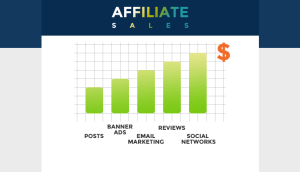Improving your WordPress site performance is not an option in this competitive online world. You must create better user experiences, impress Google so you rank well in search engine results, and make your website mobile friendly for those on the go. In fact, if your website page does not load within 2 seconds or less, your visitors are apt to bounce and find somewhere else to get what they need.
The time it takes your website to load will determine the success of your business. Today we will take a look at some of the most useful tools and plugins for optimizing your website to become faster, more productive, and ultimately more successful.
Testing Your Website’s Performance
Before you try out any of the suggested tools or plugins I will be sharing with you, it is best you first gauge how well your website is performing by using a site speed testing service such as GTMetrix, Google PageSpeed, or Pingdom.
Each of these tools will provide you a general idea as to how well your website is performing when a visitor clicks on your website. They will include analytics such as the time it takes for your website to load, the size of your pages, how many requests are being made to retrieve your website’s information, and tips for increasing your website’s performance based on the analysis. You are even provided recommendations for making your website more responsive for those visiting your site on mobile devices.
Best Tools and Plugins for Increased Website Performance
Image Optimization
Images are known for breaking up large amounts of text and grabbing your reader’s attention. However, images are also known for being very large files that take up a lot of storage space and drag your website’s speed down.
Compressing your images before adding them to your website will greatly reduce the lag your visitors experience when they click on one of your website’s pages. WP-Smush.it and EWWW Image Optimizer are two free WordPress plugins that decrease your image file sizes, bulk compress to save you time, auto-compress upon download to your Media Library, and use lossless techniques so that you will never sacrifice the quality of your images.
If you feel these plugins add too much weight to your website because of the resources they use to complete image optimization, consider trying Lazy Load, another WordPress plugin that only loads an image when the area becomes visible to the user.
Enable Caching
W3 Total Cache, WP Fastest Cache, and WP Super Cache are popular WordPress plugins designed to utilize static HTML files instead of dynamic ones when a user visits your website. This reduces the calls made to your database by using a stored copy instead and creates a much faster, better performing page loading experience.
Choose a High Quality Hosting Service
While shared hosting is great for smaller websites, with hundreds of people “sharing” the server and making requests at one time, your website’s performance is bound to suffer if you have a lot of visitors. Having a fast server is the crux of website success. The faster your website’s information is delivered to your visitors via the server, the better.
Managed hosting is the way to go if you are looking for a dedicated server that is associated only with your website. Although WP Engine seems to be the front runner among many WordPress enthusiasts, there are some other really great hosting services out there that may suit your needs just as well.
Clean Your Database
Have you ever noticed that you have several auto saved drafts of blog posts, countless post revisions saved, spam comments in the queue, or any other unnecessary information just taking up space? If so, it is time you cleaned up your database. Using WordPress plugins such as WP Optimize, WP Clean Up Optimizer, or even WP DBManager will help you clear your database of extraneous information that is weighing your website down and bringing its speed and performance with it. They also offer things such as backups, repairs, and optimizations to help increase your website’s speed even more.
Minimize CSS and JavaScript Calls
Each call to your CSS or JavaScript files equals one HTTP request. That means when someone accesses your website, the computer sends a call to your server, retrieves the information, and sends it back to be viewed by your visitor. Now what if I told you that you could cut those requests in half by combining the CSS and JavaScript files into one to reduce the HTTP requests? Well you can using plugins such as WP Super Minify or Better WordPress Minify.
Use a CDN
Using a Content Delivery Network (CDN) will help speed up your loading times even if your server is on the slower side. Hosting your static files across multiple servers around the world, a CDN will deliver you website’s information to a visitor using the nearest server to the user’s geographic location. That means a faster transfer of information to their computer and a better performing website for you. CDNs such as CloudFlare, Amazon CloudFront, and MaxCDN have been useful to website owners all over the world.
Monitor Your Plugins
Plugins are one of the biggest reasons your website is slow. If poorly coded, plugins can drain your website and cause an unpleasant user experience. Try using P3 Profiler to see exactly how plugins installed on your website affect overall performance.
Final Thoughts
Website speed is always going to matter when it comes to user experience and search engine results. Taking advantage of the tools and plugins mentioned above will help you get ahead of the game and create a fast performing, mobile friendly website that users will love to visit over and over again.
Have you tried any of the tools or plugins mentioned above? How did they affect your website’s speed and overall performance? We would love to hear from you in the comments below!
Author Bio
Devesh Sharma is a WordPress fantastic and founder of WPKube, where you will useful tutorials and in-depth guides such as how to choose the right managed hosting for WordPress, how to start a blog, and more.







HireWPGeeks
2 Dec 2015Amazing tips. I like the “WP Optimize plugin” due to its excellent features like it enable & disable weekly schedules of optimization and you can add or remove link on wp admin bar etc.